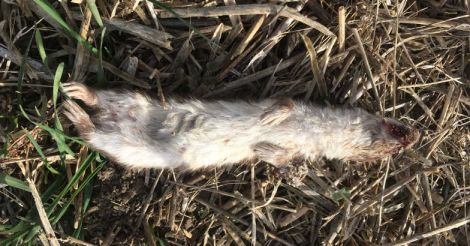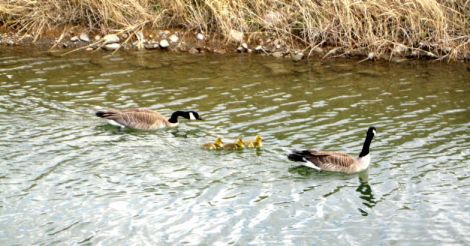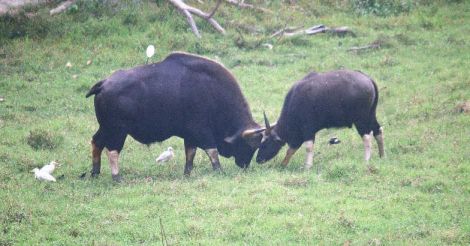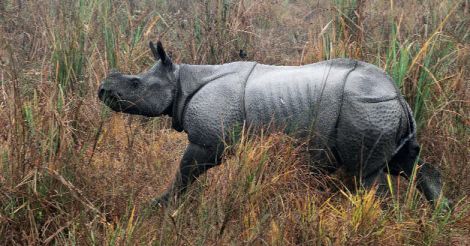Wildlife trade across the globe is slowly starting to develop into an alarming international black market. Several developing and under-developed nations across Asia (including India), Africa, Central and South Americas have been falling victims to this deadly trade that is decimating the wildlife populations indiscriminately across several countries.
Several species of primates (great and small apes and monkeys), bears, rhinoceros, elephants, tigers, leopards, snow leopards, clouded leopards, smaller wild cats, various endangered species of ornamental insects, mollusks, fishes and birds, reptiles (snakes, turtle, tortoises, geckos, lizards, caiman, alligators and crocodiles) and amphibians (frogs, toads, salamanders and newts) are all showing serious signs of declines around the planet due to indiscriminate trap, capture, poaching and bushmeat trade.
Baby animals are a particular target because of their less aggressive nature and ease in transportation. Unfortunately, three in every five such baby animals or birds actually die a painful death during this crude process of transportation along different international illegal trade routes due to acute starvation, dehydration and mishandling.
 Baby animals are a particular target because of their less aggressive nature and ease in transportation. Photo: Saikat Kumar Basu
Baby animals are a particular target because of their less aggressive nature and ease in transportation. Photo: Saikat Kumar BasuIt is important to note that such illegal trade or black markets have shifted their base over the past three decades from Western nations and the Middle East into South China, Hong Kong and parts of south and south-east Asia like Bangladesh, Myanmar, Thailand, Vietnam, Cambodia and Indonesia.
The rising economic strength of China over the past three decades has generated an economically exploitative middle-class in the country that are bent upon practising traditional Chinese medicine. Several ingredients of traditional Chinese medicine is dependent on adequate supply of marine plants and animals, wildlife skin, horns, scales, meat, fur, pelts, bones, teeth, waste products (like feces and urine), gall bladder, kidney, eye balls and even animal penis for treatment of sexual impotency and various other ailments starting from aphrodisiacs to the treatment of osteoporosis and gum diseases.
Due to such heavy demand from an expanding population, the need for steady supply of different wildlife body parts and wildlife products have skyrocketed causing serious impacts in poor, biodiverse supplier nations across Asia and Africa.
 Illegal trade or black markets have shifted their base over the past three decades from Western nations and the Middle East into South China, Hong Kong and parts of south and south-east Asia like Bangladesh, Myanmar, Thailand, Vietnam, Cambodia and Indonesia. Photo: Saikat Kumar Basu
Illegal trade or black markets have shifted their base over the past three decades from Western nations and the Middle East into South China, Hong Kong and parts of south and south-east Asia like Bangladesh, Myanmar, Thailand, Vietnam, Cambodia and Indonesia. Photo: Saikat Kumar BasuInternational trade supply line from India to China via Nepal and Tibet, from India across Bangladesh and Myanmar to South China and Hong Kong, from South East Asia via Vietnam and Myanmar into China and Hong Kong. Both land, river and sea routes are being repeatedly exploited to transport wildlife products across the Asian mainland and Central American countries through a highly specialized network of animal and wildlife traders and transporters.
China has become one of the global hotbed of illegal wildlife trade happening right in front of the local administration with covert support from the government. Its government officials, bureaucrats, diplomats, business personnel and social elites across Asia are directly or indirectly involved in this illegal trade.
They are jealously protected with arms and ammunitions and intelligence network that are comparable to the military standards of several developing and under-developed nations. It is quite unfortunate that several border security agencies, forest and environment department officials, staffs and forest guards, local politicians and businessmen across south and south-east Asia are involved in this trade to help the transportation of illegal wildlife products, major and minor forest products, rare ornamental plants and animals across international borders.
 Regulating illegal wildlife trade is highly challenging and extremely critical for all nations across the globe, with particular emphasis to the poor developing and under developed nations from Asia, Africa and Latin America. Photo: Rahul Ray
Regulating illegal wildlife trade is highly challenging and extremely critical for all nations across the globe, with particular emphasis to the poor developing and under developed nations from Asia, Africa and Latin America. Photo: Rahul RayRecently, the Chinese government banned ivory trade in the country in the wake of rising global criticism and it may have significant positive impacts on the elephant conservation programs across Asia and Africa.
Regulating illegal wildlife trade is highly challenging and extremely critical for all nations across the globe, with particular emphasis to the poor developing and under developed nations from Asia, Africa and Latin America. The rising demand for supply of bushmeat in several economically backward developing nations is a serious challenge towards effective conservation of local wildlife.
In such countries with poor nutritional status, slow economy and lack of employment opportunities, the helpless local communities are heavily dependent on local forests for their daily sustenance making the anthropogenic footprint deeper in their local ecosystems.
 Serious steps need to be adopted to cut down illegal wildlife trade. Photo: Saikat Kumar Basu
Serious steps need to be adopted to cut down illegal wildlife trade. Photo: Saikat Kumar BasuSuch communities are being exploited by international poaching and illegal wildlife trade syndicates to harvest forest products, trap, kill, hunt or capture wildlife as raw material for traditional medicinal practices. Several insurgent groups in Asia and Africa are also actively involved in illegal wildlife trade and poaching for funding their destructive activities.
Protecting forest resources and wildlife are thereby transforming into an extremely challenging task under such duress. Serious steps need to be adopted to cut down illegal wildlife trade and this could not happen without dedicated and sincere cooperation and coordination between adjacent nations.
(The author is a Canada and India based freelance journalist specializing in global geo-political, strategic and foreign policy issues, science & technology and environment & conservation related themes.)

























 Wildlife trade across the globe is slowly starting to develop into an alarming international black market. Photo: Rahul Ray
Wildlife trade across the globe is slowly starting to develop into an alarming international black market. Photo: Rahul Ray